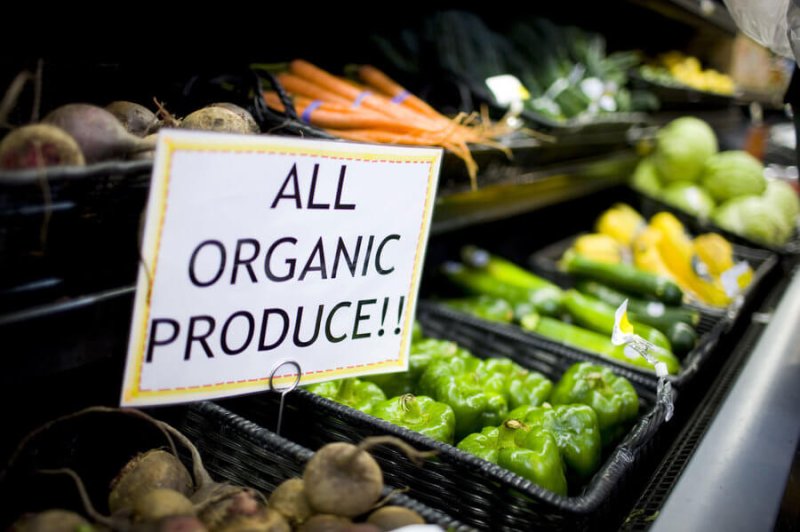Roughly 40% of all organic food sold in America tests positive for prohibited pesticides, according to two USDA studies.
And, as previously reported, Mischa Popoff, a former USDA organic inspector, has long railed that certified U.S. organic marketers are too often “given a pass” on meeting strict organic standards. He also contends that much of that 40% could be coming from overseas.
Roughly 80% of all organic food sold in America is now imported from countries like China, Turkey, Mexico and Brazil. He submits there may be a causal relationship — bribery and fraudulent claims — extending far beyond organic foods.
A recent Brazilian incident reported by Food & Water Watch lends credence to that claim. F&WW called on USDA to revoke the equivalency food safety determination for Brazilian meat exports to the U.S.
“This latest revelation of corruption — bribery, using chemicals to cover up rotten meat, sending salmonella-contaminated meat to Europe and falsifying health certificates — comes after past problems with the country’s equivalent inspections system,” noted Wenonah Hauter, F&WW executive director. She, too, contends that falsified documents and inspection bribery are rampant.
Fraudulent organic certification is nothing new, but is on the rise. A recent online report by USDA’s National Organic Program offered a long list of fraudulent organic certificates. Imports on that list come from all over the world. Brazil, China, India, Malaysia and South Africa are some of the most common countries of origin.
The GLP aggregated and excerpted this blog/article to reflect the diversity of news, opinion, and analysis. Read full, original post: Organic labeling fraud is booming
Organic food imports plagued by ‘corruption, bribery and falsified documents’
John Vogel | American Agriculturist | June 6, 2017

{{ reviewsTotal }}{{ options.labels.singularReviewCountLabel }}
{{ reviewsTotal }}{{ options.labels.pluralReviewCountLabel }}
{{ options.labels.newReviewButton }}
{{ userData.canReview.message }}
 |
Infographics | More... |

Infographic: Could gut bacteria help us diagnose and treat diseases? This is on the horizon thanks to CRISPR gene editing
Humans are never alone. Even in a room devoid of other people, they are always in the company of billions ...
Most Popular
 Is tilapia a human-made freak that we should avoid — or an evolutionary rockstar?
Is tilapia a human-made freak that we should avoid — or an evolutionary rockstar?  Embryos aren’t female by ‘default’ after all, study shows
Embryos aren’t female by ‘default’ after all, study shows  Viewpoint: Should you be concerned when you read that a chemical in your food has been linked to cancer? Here’s an epidemiologist’s checklist to detect over-hyped scares
Viewpoint: Should you be concerned when you read that a chemical in your food has been linked to cancer? Here’s an epidemiologist’s checklist to detect over-hyped scares  Why you may soon be shopping for tomatoes enhanced with snapdragon flower genes
Why you may soon be shopping for tomatoes enhanced with snapdragon flower genes  Viewpoint: By engineering block on Vitamin A enhanced Golden Rice, Greenpeace ‘puts the whole environmental movement into disrepute’
Viewpoint: By engineering block on Vitamin A enhanced Golden Rice, Greenpeace ‘puts the whole environmental movement into disrepute’  How common is incest? Rise of genetic testing reveals disturbing evidence
How common is incest? Rise of genetic testing reveals disturbing evidence  Marrying your cousin? There may be evolutionary benefits
Marrying your cousin? There may be evolutionary benefits  Viewpoint: The organic food industry is a $180 billion marketing fraud
Viewpoint: The organic food industry is a $180 billion marketing fraud  Why humans have larger penises and smaller testicles than other great apes
Why humans have larger penises and smaller testicles than other great apes  Russia banned GMOs years ago to distinguish itself from the United States. What’s its current stance toward genetic engineering, CRISPR and other New Breeding Techniques?
Russia banned GMOs years ago to distinguish itself from the United States. What’s its current stance toward genetic engineering, CRISPR and other New Breeding Techniques?


















